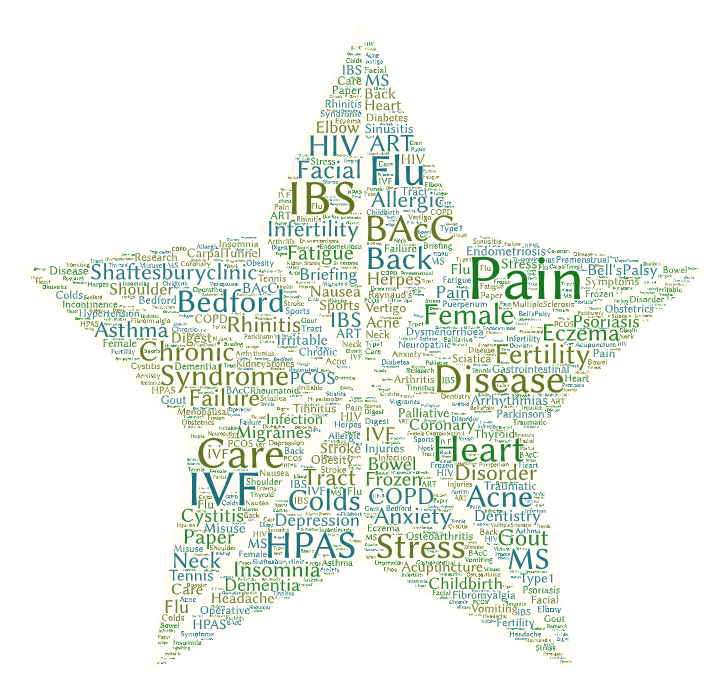Page under construction
There is a great deal of information about acupuncture and allergy, and allergic rhinitis, as well as cold and flu on our other pages.
Important to know: Chronic health conditions should be addressed under direct medical supervision of your GP or consultant, and acupuncture would be an adjunct or complement to usual care – we advise that you let you doctor know when you use this approach.
Reducing Inflammation and Nasal Congestion – Mechanisms of Action
Per MacDonald et al (2015), acupuncture may: reduce inflammation and nasal congestion by downregulating proinflammatory neuropeptides, cytokines, and neurotrophins; modulate immune function by altering the balance of Th1 and Th2 cells and suppressing mast cell degranulation; influence various receptors and signalling pathways that are involved in inflammatory response, such as TRPV1, opioid, chemokine, dopamine, and cannabinoid receptors; activate a novel cholinergic anti-inflammatory pathway that involves vagal and sciatic nerves and is mediated by dopamine.
Possible mechanisms of action in inflammation reduction
A review article (Kavoussi & Ross, 2007) suggests that the anti-inflammatory actions that have been demonstrated to be brought about by acupuncture may be mediated via activation of the vagus nerve, alongside deactivation of inflammatory macrophages and other proinflammatory cytokines. The researchers concluded that “The use of acupuncture as an adjunct therapy to conventional medical treatment for a number of chronic inflammatory and autoimmune diseases seems plausible and should be validated by confirming its cholinergicity”.
Other studies (Zijlstra et al, 2003) have revealed that acupuncture some of the pain modulating and anti-inflammatory effects exhibited in acupuncture may be due to the fact that it has been shown to stimulate certain substances in the body which act as vasodilators, neurotransmitters and painkillers (beta-endorphins, CGRP and substance P) and further stimulate cytokines and nitric oxide, all of which play roles in inflammatory states.
Zijlstra et al (2003) reviewed the effects and mechanisms of acupuncture in treating various inflammatory diseases and conditions. They proposed the mechanisms of action:
- Acupuncture may release neuropeptides from nerve endings that have vasodilative and anti-inflammatory effects through CGRP.
- Acupuncture may also interact with substance P, which is involved in pain transmission and inflammation.
- Acupuncture may contribute to analgesia by stimulating the release of β-endorphin, which binds to opioid receptors and inhibits pain signals.
- Acupuncture may influence the balance between cell-specific pro-inflammatory and anti-inflammatory cytokines such as TNF-α and IL-10.
McDonald et al (2013) reviewed the pathophysiology of acupuncture, as it had been shown to improve clinical outcomes by modulating immune response and reducing inflammation. Per the review of RCTs, acupuncture down-regulated Th2 and proinflammatory cytokines, proinflammatory neuropeptides (such as SP, CGRP and VIP) and neurotrophins (such as NGF and BDNF); showing some of the means by which the anti-inflammatory effect occurs.
Wang et al (2023) reviewed evidence from animal and human studies regarding the immunomodulatory mechanism of acupuncture, regarding its effects on different components of the immune system, such as mast cells, macrophages, neutrophils, natural killer cells, astrocytes, microglia, CD4+ and CD8+ T cells, and cytokines. They detailed the neuroanatomical mechanisms of acupuncture in immunomodulation, such as the vagal-adrenal pathway, the cholinergic anti-inflammatory pathway, the spinal sympathetic pathway, the brain-gut axis, and the hypothalamus-pituitary-adrenal axis. They concluded that studies to support the role of acupuncture in regulating inflammation, infection, allergy, pain, and tissue repair.
Acupuncture stimulates the body to create its own natural painkilling substances, such as Beta Endorphins (β-Endorphin). In studies acupuncture has been shown to stimulate the production of natural painkillers called opioid-like peptides (OLPs), including β-Endorphin: For example, this was shown in an RCT in 90 patients with a range of painful disorders (Petti et al, 1998). The same study showed acupuncture also and enhanced the activity of immune cells (lymphocytes, natural killer cells and monocytes) that help fight infections and diseases (Petti et al, 1998).
Electroacupuncture (EA) has been shown in a rat model (Li et al, 2008) to have anti-inflammatory benefits by modulating the hypothalamic-pituitary-adrenal (HPA) axis, (HPA axis regulates the stress response and immune function). Specifically, Li et al outlined that EA sets off a cascade in the brain (via corticotropin-releasing hormone, and adrenocorticotropic hormone) to produce cortisol, which reduces inflammation and oedema.
Acupuncture can activate mast cells at acupoints, which release histamine, serotonin, adenosine, and other mediators that modulate nerve transmission and inflammation (Li et al, 2022)
About the research: It is worth noting that in research, randomised controlled studies (RCT) are the most reliable in terms of quality of evidence, with a systematic review or meta analysis of numerous studies being the best way of seeing the overall picture of the state of the evidence. Below we have a selection of the available research, which does include some larger RCTs, and reviews of the literature alongside smaller studies. The n= figure tells you how many people were participants in the study.
Resources:
British Acupuncture Council evidence based factsheet about Sinusitis including specific research, trials and mechanisms of action for acupuncture in this condition.
BAcC evidence based Allergic Rhinitis Factsheet
References:
Kavoussi B, Ross BE. The neuroimmune basis of anti-inflammatory acupuncture. Integr Cancer Ther 2007; 6: 251-7.
Li, A., Lao, L., Wang, Y., Xin, J., Ren, K., Berman, B.M., Tan, M. and Zhang, R., 2008. Electroacupuncture activates corticotrophin-releasing hormone-containing neurons in the paraventricular nucleus of the hypothalammus to alleviate edema in a rat model of inflammation. BMC Complementary and Alternative Medicine, 8(1), pp.1-8.
Li, Y., Yu, Y., Liu, Y. and Yao, W., 2022. Mast cells and acupuncture analgesia. Cells, 11(5), p.860.
McDonald, J.L., Cripps, A.W., Smith, P.K., Smith, C.A., Xue, C.C. and Golianu, B., 2013. The anti-inflammatory effects of acupuncture and their relevance to allergic rhinitis: a narrative review and proposed model. Evidence-Based Complementary and Alternative Medicine, 2013.
McDonald, J.L., Cripps, A.W. and Smith, P.K., 2015. Mediators, receptors, and signalling pathways in the anti-inflammatory and antihyperalgesic effects of acupuncture. Evidence-Based Complementary and Alternative Medicine, 2015.
Petti, F.., Bangrazi, A., Liguori, A., Reale, G. and Ippoliti, F., 1998. Effects of acupuncture on immune response related to opioid-like peptides. Journal of Traditional Chinese Medicine 18(1), pp.55-63.
Wang, M., Liu, W., Ge, J. and Liu, S., 2023. The immunomodulatory mechanisms for acupuncture practice. Frontiers in Immunology, 14.
Zijlstra, F.J., van den Berg-de Lange, I., Huygen, F.J. and Klein, J., 2003. Anti-inflammatory actions of acupuncture. Mediators of inflammation, 12(2), pp.59-69.


